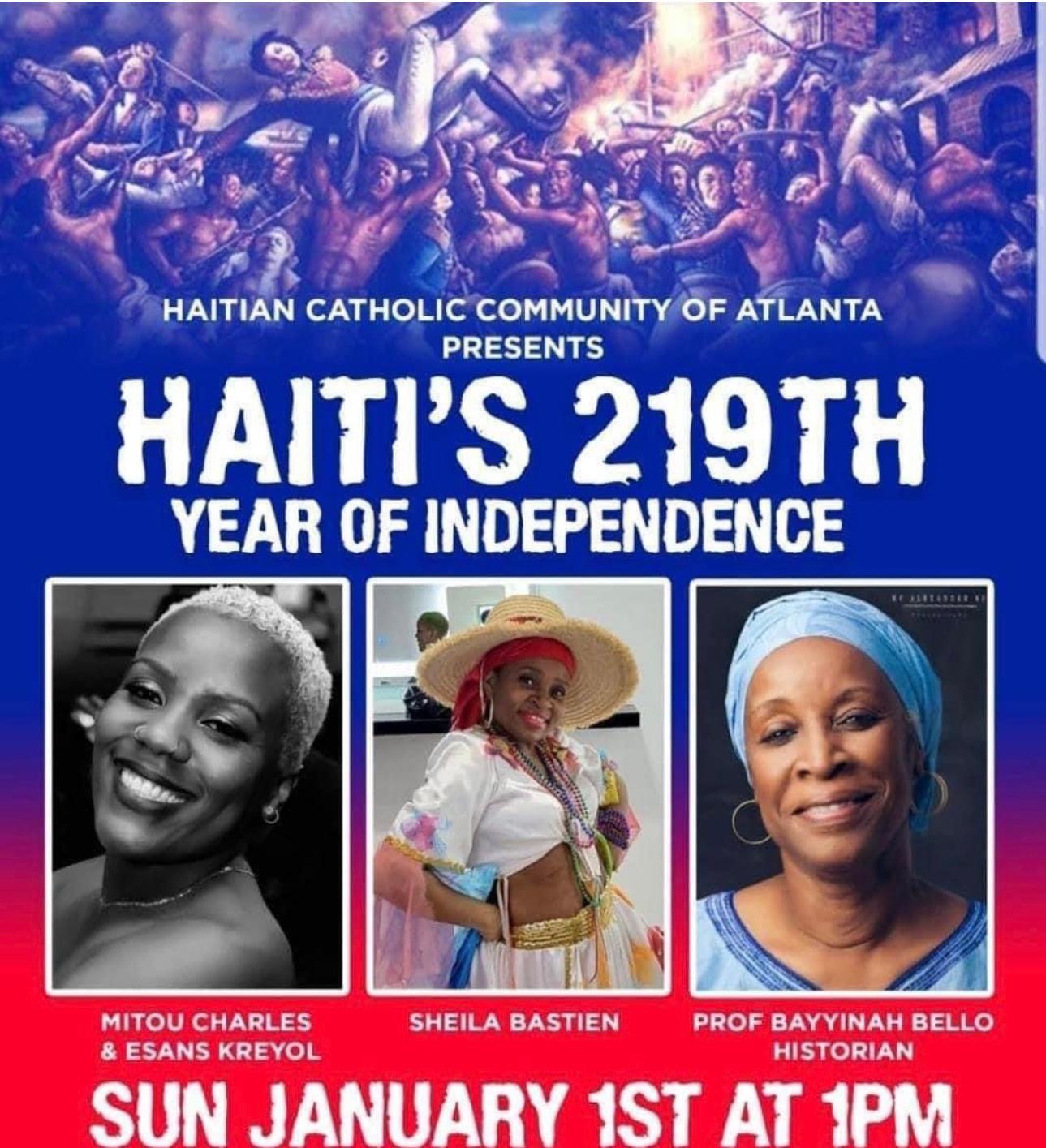
 Caribbean OnDemand
Caribbean OnDemand![]() -
June 13, 2024 -
-
June 13, 2024 -
6 minutes, 3 seconds -
1,259 views - 0 Comments - 0 Likes - 0 Reviews
Haiti’s Independence Celebration in Atlanta. Every year on January 1st, the Haitian community in Diaspora gathers to celebrate the historical date of their country’s independence. This year marks the 219th anniversary of Haiti’s independence. The community of Atlanta came together to commemorate the occasion through the invitation of Haitian Chaplain Rev. Fr Carl Jean of Sts Peter and Paul Catholic Church, which has been a significant part of the spiritual and cultural growth of the Haitian Catholic community over the past 25 years. The celebration included a Mass, dance performances, and a presentation by a historian. The media was present to cover the event and raise awareness about Haitian culture, and a diverse group of people participated, including community leaders, lawyers, entrepreneurs, Protestants, Catholics, Vodouyizan, promoters, artists, poets, and children and adults. The celebration of Haiti’s independence is a testament to the resilience and strength of the Haitian community. It serves as a reminder of the rich cultural traditions integral to the country’s history and identity.
Haiti’s Independence Celebration: Unity and Resilience. The Mass at the event’s start was led by Bishop Jean and focused on the theme of unity and strength. As Hall et al. (2019) note, despite facing many challenges, Haitians are resilient and have a long history of overcoming adversity. For example, Haiti was the first to successfully revolt against slavery and establish itself as an independent Nation. The media was present at the event to cover the Mass and highlight this message of resilience. The dance performances that followed featured a fusion of Catholic and African cultural elements (Hall et al., 2019). These performances and the media coverage served to celebrate and preserve the cultural traditions and values that are important to the Haitian community, such as community, unity, and resilience. The celebration was attended by a diverse range of individuals, including media Representatives, Community Leaders, Professionals such as Lawyers and Entrepreneurs, individuals from various religious backgrounds, including Protestant and Catholic, Vodouyizan practitioners, promoters, artists, poets, and people of all ages from children to adults. These traditions and values will continue to be an essential source of strength for the Haitian community in the future.
Preserving and Celebrating Haiti’s Cultural Traditions through Dance. The performance of the Haitian Folklore Congo Dance, in particular, was described as showcasing the “swaying hips in almost erotic manner” and using “hands and feet to mark the man’s limits” (Hall et al., 2019, p. 464). This dance, and the others that were performed, served as a powerful reminder of the rich cultural traditions of Haiti and the importance of preserving and celebrating them. These traditions, including music, dance, and religious practices, have played an essential role in helping Haitians to maintain their cultural identity and sense of community, even in the face of difficult circumstances.
Exploring the Pillars of Haitian History: Discipline and Justice. The event also included a presentation by Professor and Historian Bayyinah Bello, who shared insights about the two pillars of Haitian history: discipline and justice (Hall et al., 2019). This historical perspective provided a deeper understanding of the country’s past and the events that led to its independence. The community was able to learn more about their history and the struggles that their ancestors faced in order to gain their freedom.
The celebration of Haiti’s independence in Atlanta was a vibrant event that brought the community together to honor their culture and history. The Mass, dance performances, and historical presentation contributed to a deeper understanding and appreciation of Haiti’s past and present. The media’s presence at the event helped raise awareness about Haitian culture and the importance of commemorating this significant anniversary. The joy and unity displayed by the community during the celebration were palpable, and the media’s coverage of the event helped to spread information about Haitian culture and the importance of preserving and celebrating it. This sense of pride and connection will continue to be a source of strength for the Haitian community in the future
Chenet Nerette Modern Journalist. Bachelor of Science (Digital Audience Strategist, Communication and Mass Production & Sales) ASU Walter Cronkite School of Journalism & Mass Communication. CEO of Power102.Net & Haiti On Demand Inc. #CronkiteGlobal #HOD

We are a close community to help to meet and greet new people.
Enjoy your favorite artists, music, videos, events, and more when you subscribe to Caribbean On Demand.
